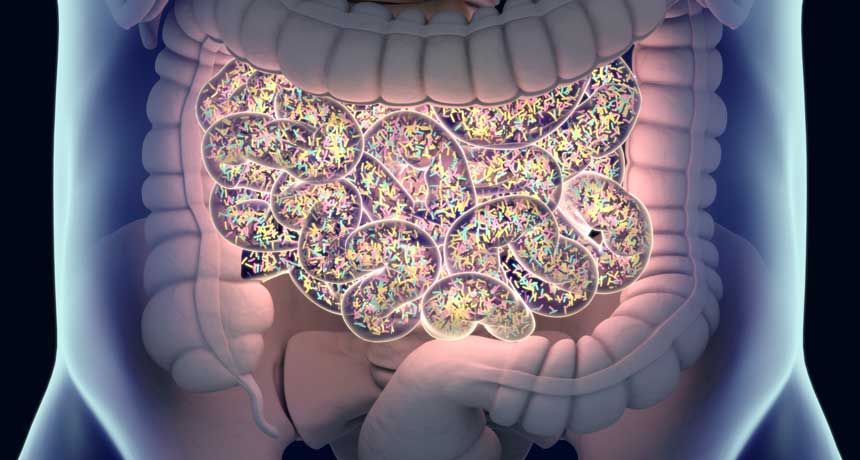How gut bacteria may affect anxiety
Tiny molecules could be key to microbes’ long-distance effect on the brain

GUT REACTION Scientists may have identified the molecular operatives in the brain that help gut bacteria influence anxiety levels from afar.
ChrisChrisW/iStockphoto